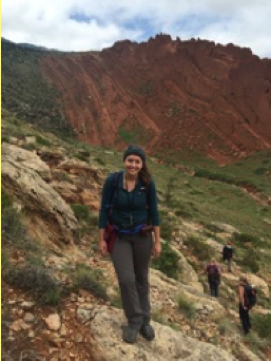Peter is the Charles T. McCord Jr. Chair in Petroleum Geology and focuses his research on climate and tectonic issues especially within the Asian marginal seas. He has a particular interest in the Arabian and the South China Seas and takes a holistic approach to the development of the stratigraphic record by following sedimentary particles from source to sink in order to understand how they can be used to reconstruct evolving climate and tectonics. Equally comfortable at sea working with geophysics and coring equipment and in the mountains swinging a hammer. He has worked on a variety of timescales from the onset of the India-Asia collision to the impact of Holocene climate changes on Asian landscapes. Most recently he has been working on the impact of human settlement on Asian rivers and deltas, and how the evolving monsoon has affected the development of civilizations in Asia.
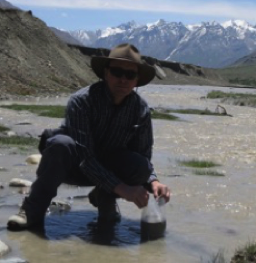
Helen Hammon
Helen Hammon is a second year masters student interested in the geochemical makeup of Permian mudrocks in the Midland Basin of west Texas. Her focus is on the interglacial variations in sealevel and climtically modulated sediment supply during the Permian and their effects on lithological changes. An integration of XRD, XRF, density logs and prorosity logs will be used to accomplish this research.
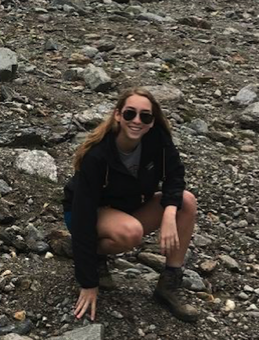
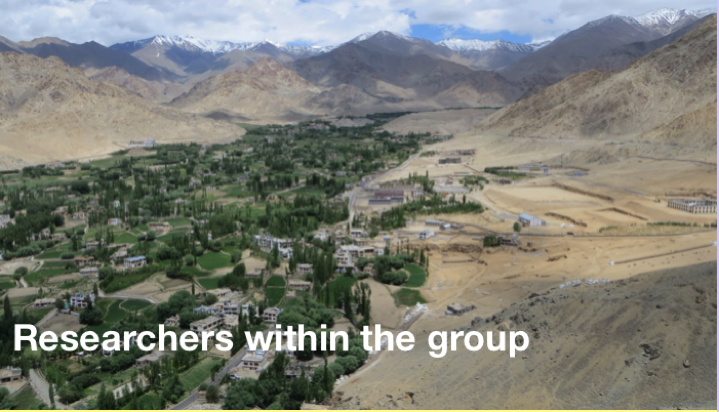
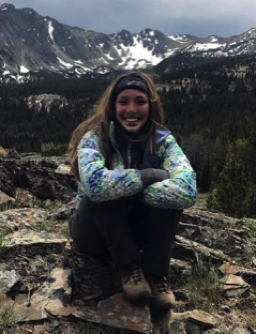
Elise Exnicios
Elise Exnicios is a master's student who is interested in the sedimentary geology of the NW Indian Himalayan foreland basin. She is analyzing U-Pb age data from detrital zircon grains and apatite fission track data from Siwalik Group sedimentary rocks. These Siwalik sediments come from two neighboring magnetostratigraphically dated sections: the Jawalamukhi section (13-5 Ma) and the Dharamsala Formation section (21-13 Ma). She is excited about this project because these two sections combined hold the key to documenting the longest erosional and exhumation history in the Indian Himalayan foreland basin, complementing earlier studies in this group made offshore.
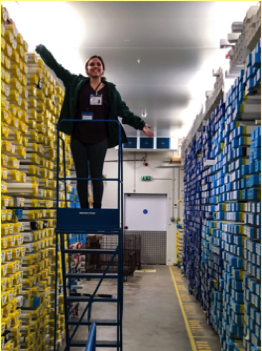
Nikki Neubeck
Nikki Neubeck is a first year masters student interested in the sedimentology of the Mississippi River and False River point bar complex. She will be using a Geoprobe coring rig at various locations along the False River point bar to obtain her data, as well as collecting sediment samples from the Mississippi River near Reserve, Louisiana. Her focus is to age date the time at which sediment along the False River was deposited as well as try to pinpoint where the sediment originated from and to what extent the sediment in the Mississippi has a constant composition over a variety of annual and centennial timescales.
Former Members of the Group
Brittney Gregory
Brittney Gregory was a PhD student with interests in Quaternary geology of fluvial systems. Her research focused on depositional changes of the Mississippi Delta in the Holocene and the origin of sand in the modern Mississippi River. Specifically, this research used clay and heavy minerals, detrital zircon U-Pb dating and a variety of elemental analyses to determine changes in provenance over the last 5000 years.
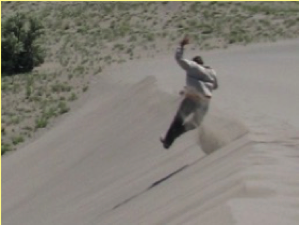
Peng Zhou
Peng Zhou is a recently graduated PhD student now working at Northern Kentucky University. He studies tectonic-climatic interactions in the Arabian Sea, involving reconstruction of the long-term changes in erosion and weathering rates,as well as changes in erosion and weathering intensity over tectonic timescales. He uses bulk sediment geochemical analysis, Sr and Nd isotope systems, clay mineralogy, heavy mineral studies, U-Pb dating of detrital zircons and other sediment provenance techniques in his study. Peng also has more than seven year’s industrial experience as a petroleum geologist, working on offshore operations in the South China Sea and unconventional plays in the Sichuan Basin and Anadarko Basin. He has wide research interests which not only focus on tectonic-climatic interaction and petroleum geology; He is also interested in sedimentology, geochemistry and basin analysis.
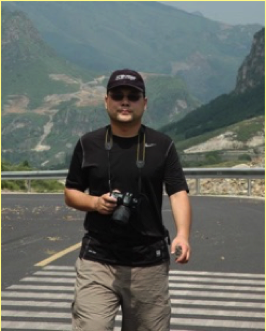
Andrew Osborne
Andrew Osborne was a senior with interests in the geology of fluvial systems, metamorphic petrology, and subsurface hydrological systems. His research with Dr. Clift focused on changes in sediment provenance over time in the Mississippi River as determined from zircon U-Pb dating and signature correlation to specific mountain ranges in the Mississippi Drainage Basin. Andrew also worked with Dr. Darrell Henry researching variable fluid interactions with 2.8 Ga Mafic Xenoliths from the Beartooth Mountains. He now attends graduate school at the University of South Carolina.
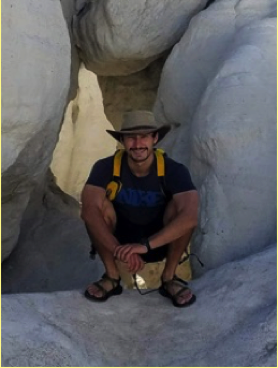
Tara Jonell
Tara’s doctoral research addressed the erosional response of mountain landscapes to climate change, and the role climate plays in mediating sediment storage through river terraces. Her work brought her to the NW Himalaya to establish the Quaternary erosional history of the Zanskar River, utilizing OSL dating, quantitative geomorphology, and sediment provenance techniques. Tara has wide-ranging interests involving landscape development; when she is not pondering terrace dynamics in the Himalaya, she often finds herself contemplating the growth and migration of caldera landscapes in the southwest U.S. She is currently a postdoctoral researcher at the University of Queensland, Australia working on the Quaternary geology of Tibetan lakes.
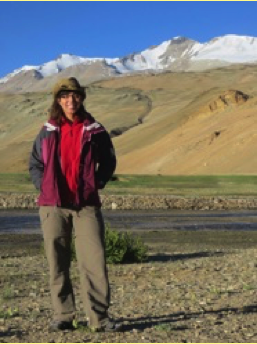
Andrew Jacobus
Andrew Jacobus was a senior undergraduate geology research student, interested in paleocontinent reconstructions, basin analysis, structural geology, and geomorphology. He worked on determining the origin of the Sabine Block within the South-Central United States through the use of bulk geochemical analysis, U-Pb dating of detrital zircons, and petrographic analysis of xenoliths from the Prairie Creek Lamproite pipe in Murfreesboro, Arkansas. Andrew continued his education into the graduate level at Binghamton University.
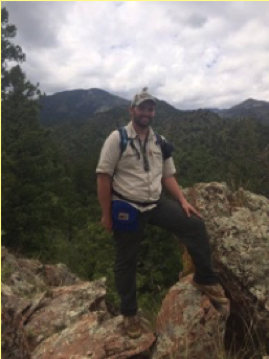
Alexandra Lechnowskyj
Alexandra studied sedimentology and stratal architecture of point bar systems. Her research was focused on the False River point bar system of the Lower Mississippi River. Here she undertook sediment coring, shallow seismic reflection, and laboratory analyses with combined research interests and testing by a fellow geophysicist. Alexandra worked in environmental consulting in San Diego, CA after graduation. In 2020 she unexpectedly passed away and is greatly missed by her friends here at LSU.

Elizabeth Olson
Liz Olson was a master’s student who studied the sedimentology of the False River point bar system. She focused on studying the reorientation surfaces of the system as well as the channel ties connecting the present oxbow lake to the Mississippi River. Liz accomplished this through analyzing sediment cores, geophysical logs, and shallow seismic reflection data. Liz was excited to work on a project that has such broad implications for river system sedimentology as this point par system will be used as an analog to the Canadian Tar Sands. Liz now works for Chevron in Denver, CO.
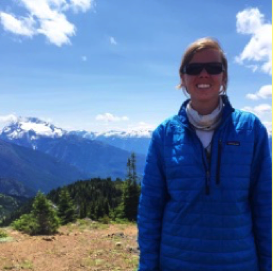
Yuting Li
Yuting Li was a PhD student with research interests in sedimentary and environmental geology. Her PhD research focused on the sediment flux through the Indus Canyon, involving the reconstruction of long-term weathering histories from marine sediment cores collected offshore Pakistan. She tested what controls the flux of sediment through this conduit to the upper fan since the Last Glacial Maximum. Her aims were to look at the provenance and weathering records in the cores using geochemical analyses, carbon dating, 210Pb analysis, XRF scanning and grain size analysis. Yuting became an instructor at Purdue University after graduation and now works at the University of North Texas.

Chang Liu
Chang Liu studied sub-surface marine geology for PhD. He is currently working on the South China Sea project. He used geochemical methods including isotopes, clay mineralogy, and major element compositions to explore the chemical weathering history of SE Asia and its links to the monsoon during the glacial and interglacial cycles. He furthermore built a high resolution climatic record of the South China Sea basin. He is also interested in geomicrobiology and believes that microbes should be a useful way to interpret some geology phenomenon. Chang now works for International Ocean Discovery Program at Texas A&M University.
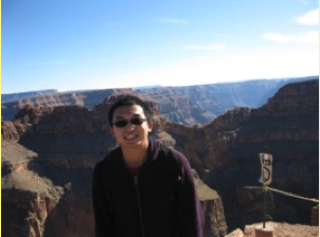
Sarah Dailey
Sarah studied the sedimentology of a newly discovered mass transport deposit, the Nataraja Submarine Slide in the Indian Ocean. She analyzed the core sampled from IODP expedition 355 to determine the composition of the slide and its depositional mechanisms. She also used isotope analysis and U-Pb zircon dating to constrain the provenance of the deposit. Sarah was excited to be working on this deposit not only because of how little is known about it, but because it’s the second largest mass transport deposit on a passive margin. She now works for an oil industry data company in Austin, TX.
